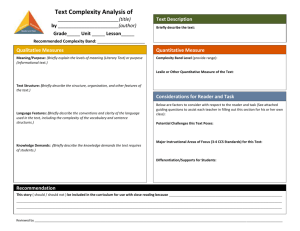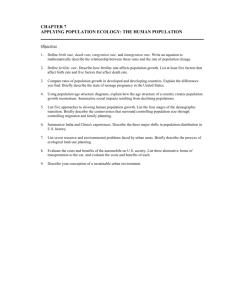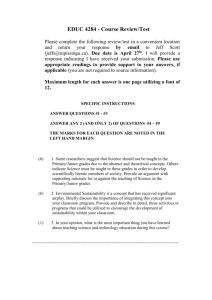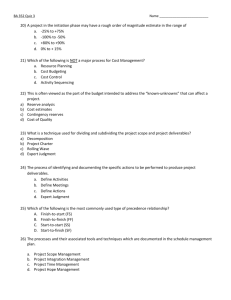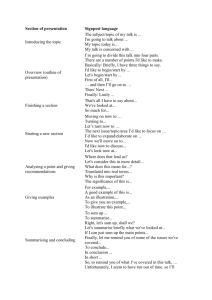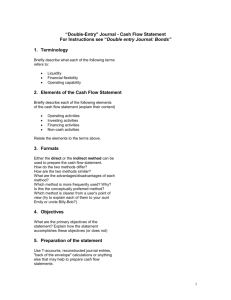Erin has purchased a $35 ticket to a Dave Mathews concert
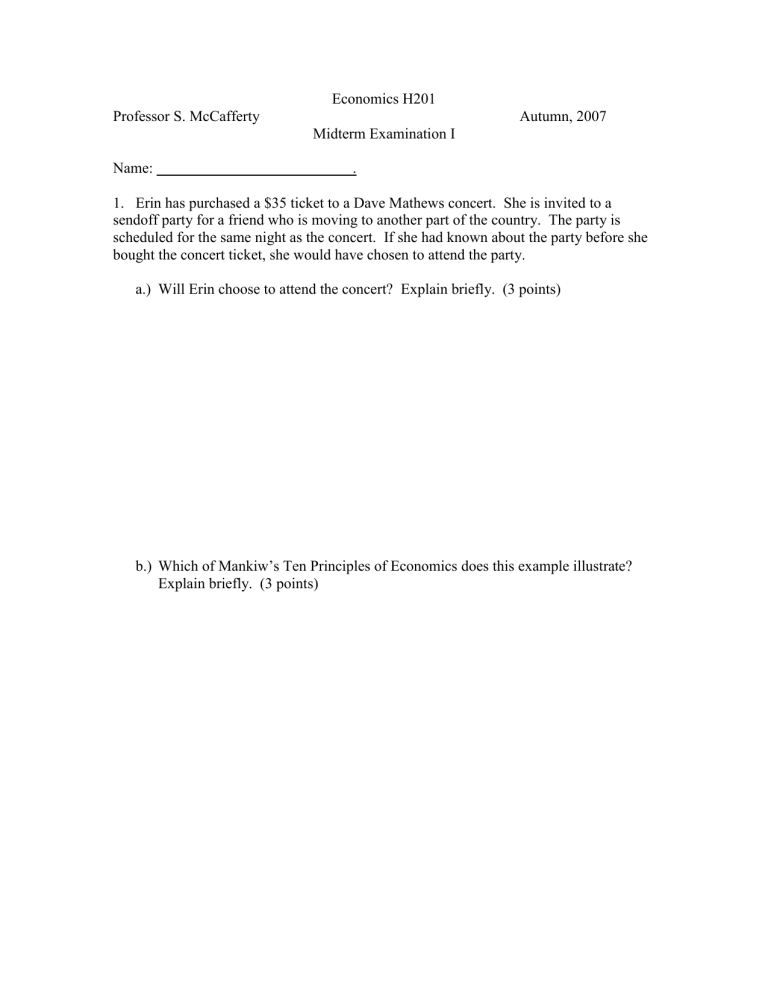
Professor S. McCafferty
Economics H201
Midterm Examination I
Name: .
Autumn, 2007
1.
Erin has purchased a $35 ticket to a Dave Mathews concert. She is invited to a sendoff party for a friend who is moving to another part of the country. The party is scheduled for the same night as the concert. If she had known about the party before she bought the concert ticket, she would have chosen to attend the party. a.) Will Erin choose to attend the concert? Explain briefly. (3 points) b.)
Which of Mankiw’s Ten Principles of Economics does this example illustrate?
Explain briefly. (3 points)
2
2.
Suppose that the gains from National Aeronautics and Space Administration’s
(NASA) space shuttle program are $24 billion per year. If there are 4 launches per year, then the average benefit from each launch is $6 billion. Suppose that the total cost of the
4 launches is $30 billion, for an average of $5 billion per launch. a.) Based on this information, can we be certain that an expansion in the number of launches per year is warranted? Explain briefly. (3 points) b.)
Which of Mankiw’s Ten Principles of Economics does this example illustrate?
Explain briefly. (3 points)
3
3.
The following table summarizes the tradeoff between grades and income.
Total Hours Hours Studying GPA Hours Working Income
60 60 4.0 0 $0
60
60
60
60
40
30
10
0
3.0
2.0
1.0
0.0
20
30
50
60
$100
$150
$250
$300 a.) Calculate the opportunity cost of an increase in the number of hours spent studying in order to earn a 3.0 grade point average (GPA) rather than a 2.0 GPA.
(3 points) b.) Is the opportunity cost the same for a move from a 0.0 GPA to a 1.0 GPA as it is for a move from a 1.0 GPA to a 2.0 GPA? Explain briefly. (3 points)
4
4.
Suppose that demand and supply for a particular good are described by the following table
Price Quantity Demanded Quantity Supplied
$1 500 100
$2
$3
400
350
120
150
$4
$5
$6
320
300
275
200
300
410
$7
$8
$9
$10
260
230
200
150
500
650
800
975 a.) What is the equilibrium price for this good? What is the equilibrium quantity bought and sold? Explain briefly. (4 points) b.) Describe the situation at a price of $2. What will likely occur? (4 points) c.) Suppose that the government imposed a minimum price of $7. How much of the good would be bought and sold? Explain briefly. (4 points)
5
5.
Suppose that there is an increase in the price of jet fuel. Suppose that the prices of other types of fuel and energy are unchanged. a) In the diagram below, indicate the effects on the market for air travel. Explain briefly. (4 points)
Price of Air Travel
Supply of Air Travel
A
Demand for Air Travel
Quantity of Air Travel
b) In the diagram below, indicate the effects on the market for train travel. Explain briefly. (4 points)
Price of Train Travel
Supply of Train Travel
Demand for Train Travel
Quantity of Train Travel
6
6.
If a surfboard is produced this year but not sold until next year, how is it counted in this year’s GDP and not next years’ GDP? Explain briefly. (4 points)
7.
For each of the following transactions, state the effect on U.S. GDP. Also identify the separate effects each transaction may have on U.S. consumption, investment, government spending, and net exports. a)
Nabisco’s purchase of flour to make cookies. (2 points) b) Your purchase of flour to make cookies for your study group. (2 points)
7 c)
The Pentagon’s purchase of flour to make cookies for soldiers. (2 points) d)
Nabisco’s purchase of an oven to bake cookies. (2 points) e) Your purchase of Hungarian hazelnuts to put in your cookies. (2 points)
8
8.
Consider the following statistics for a hypothetical country. This country's only products are Food, Clothing, and Entertainment. In the base year, price and quantity data are given by:
Good
Food
Clothing
Entertainment
Quantity
3
5
2
In the current year, price and quantity data are given by:
Price
$2
$3
$5
Good
Food
Clothing
Entertainment
Quantity
8
4
3
Price
$3
$5
$4 a.) Calculate Nominal Gross Domestic Product in the Base Year. (3 points) b.) Calculate Nominal Gross Domestic Product in the current year. (3 points) c.) Calculate the percentage change in Nominal Gross Domestic Product from the
Base year to the current year. (3 points)
9 d.) Calculate the value of the GDP Deflator for the current year. (4 points) e.) Suppose that the base year quantity data given above exactly reflects weights given to the three goods in the survey of consumers compiled by the Bureau of
Labor Statistics. Calculate the value of the Consumer Price Index for the current year. (6 points)
10
9.
Suppose that in 1980, your parents got their first job(s), bought their first new car, and paid medical expenses for the birth of their first child. Also suppose that in 1960, your grandparents got their first job(s), bought their first new car, and paid medical expenses for the birth of their first child. Wages received and prices paid are given in the table below.
Salary
Medical Expenses
Automobile
Parents
$12,000
$800
$6,000
Grandparents
$3,000
$200
$4,000
Gasoline $0.40 $0.20
Also suppose that the Consumer Price Index (CPI) in 1960 was 30 and in 1980 was 82. a.) Adjusted for inflation (as measured by the CPI), who got the higher salary? Show your calculation. (4 points) b.) Adjusted for inflation (as measured by the CPI), who paid more for medical expenses? Show your calculation. (4 points)
11 c.) Adjusted for inflation (as measured by the CPI), who paid more for their first car?
Show your calculation. (4 points) d.) Adjusted for inflation (as measured by the CPI), who paid more for gasoline to run their car? Show your calculation. (4 points)
12
10.
Studies of current procedures for calculating the consumer price index point out three ways in which the CPI may overstate the amount of inflation in the cost of living. These potential problems are called the product substitution bias, the outlet substitution bias, the introduction of new goods, and unmeasured quality changes. a.) Give a specific example of how the product substitution bias might cause the CPI to overstate the extent of increases in the cost of living. Explain briefly.
(3 points) b.) Give a specific example of how the introduction of new goods might cause the
CPI to overstate the extent of increases in the cost of living. Explain briefly.
(3 points)
13 c.) Give a specific example of how measurement of quality changes might cause the
CPI to overstate the extent of increases in the cost of living. Explain briefly.
(3 points)
11.
Frank is lending Sarah $1,000 for one year. Frank and Sarah agree that Frank should earn a 2% real return on the loan. The CPI is 100 at the time Frank makes the loan.
Frank and Sarah both expect that the CPI will be 105 when Sarah repays the loan. What nominal rate of interest should Frank charge Sarah? Explain briefly. (4 points)

